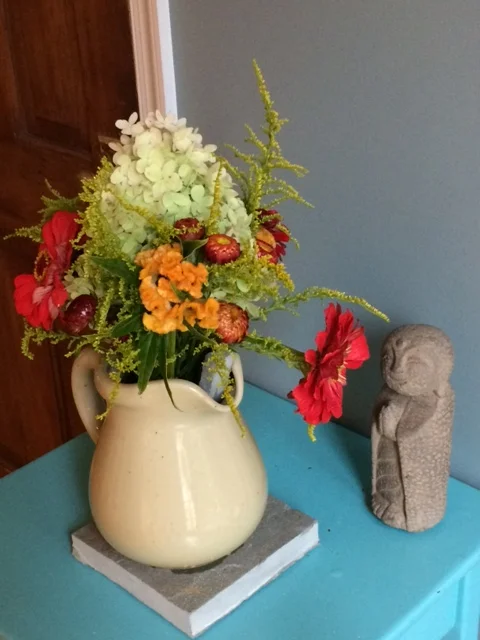This week, Alison will facilitate.
In keeping with the “New Year, New Me” theme of our first Sangha of 2019, I wanted to share the following excerpt from Thich Nhat Hanh’s book Happiness:
To begin anew is to look deeply and honestly at ourselves, our past actions, speech, and thoughts and to create a fresh beginning within ourselves and in our relationships with others. We practice Beginning Anew to clear our mind and keep our practice fresh. When a difficulty arises in our relationships and one of us feels resentment or hurt, we know it is time to begin anew.
Beginning Anew helps us develop our kind speech and compassionate listening because it is a practice of recognition and appreciation of the positive elements within our Sangha. Recognizing others’ positive traits allows us to see our own good qualities as well. Along with these good traits, we each have areas of weakness, such as talking out of anger or being caught in our misperceptions. As in a garden, when we “water the flowers” of loving kindness and compassion in each other, we also take energy away from the weeds of anger, jealousy, and misperception.
We can practice Beginning Anew everyday by expressing our appreciation to the people in our community and apologizing right away when we do or say something that hurts them. We can politely let others know when we have been hurt as well. The health and happiness of the whole community depends on the harmony, peace, and joy that exists between everyone.
Thay goes on to describe a Beginning Anew practice that is done each week at Plum Village. The practice has three parts: (1) flower watering, in which one acknowledges the wholesome and wonderful qualities of others, which helps alleviate feelings of anger and resentment; (2) expressing regrets for any action one has taken to hurt someone else; and (3) expressing ways one has been hurt by others. While the Plum Village practice is directed at the members of that Sangha who share a more extensive experience with each other, I believe that this practice can also be useful in terms of how we address issues outside any particular sangha too. I look forward to sharing and hearing others’ thoughts on Thay’s message and the Beginning Anew practice.
Namaste,
Alison

